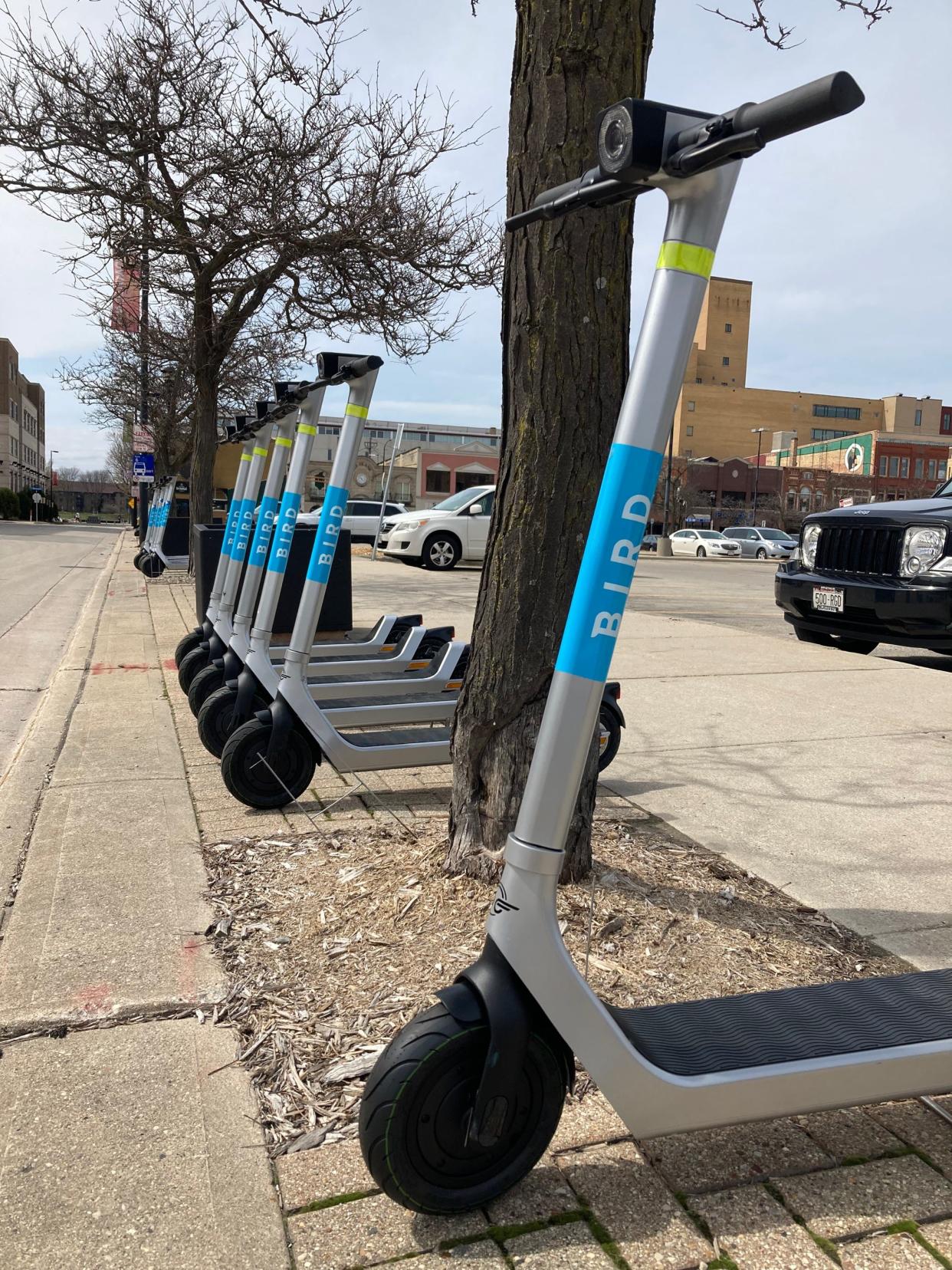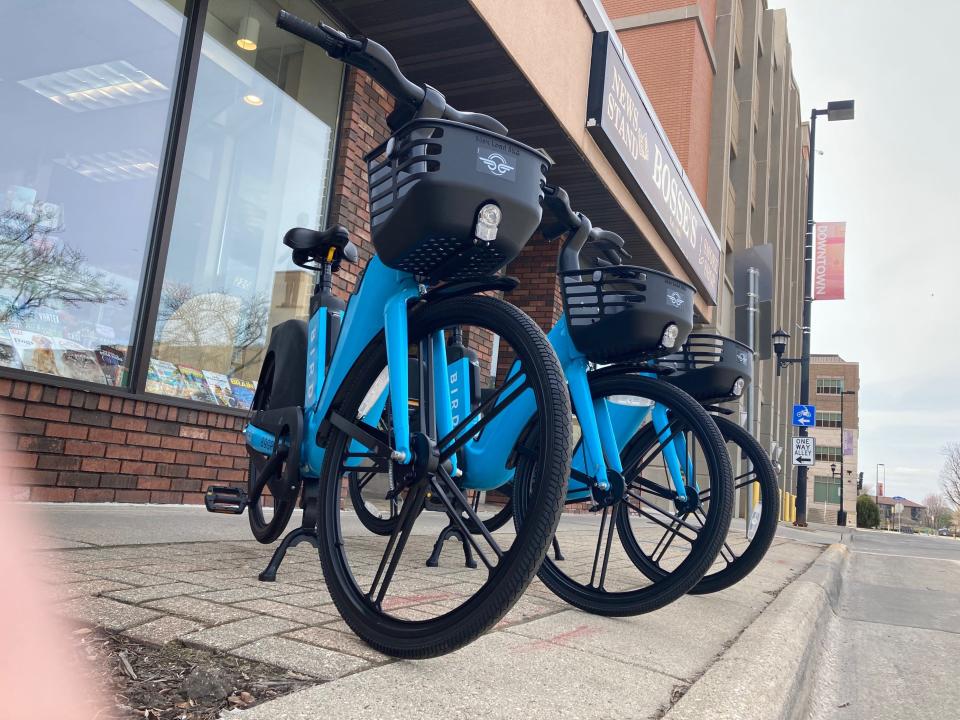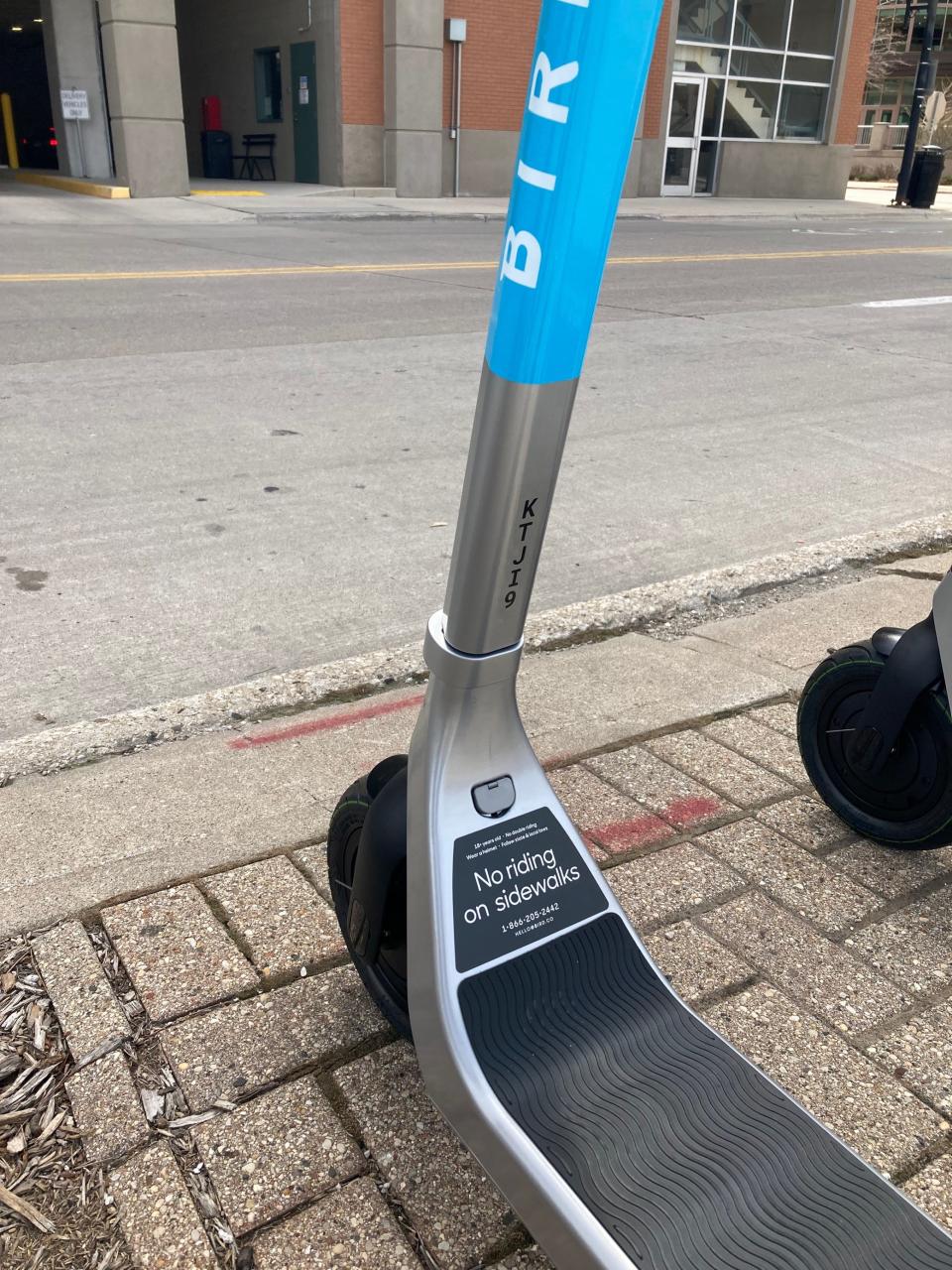Bird expands scooter, e-bike rentals in Green Bay after hugely successful pilot last summer

GREEN BAY - Pelicans, warblers and herons aren't the only flocks coming back from a long winter. Bird, the electric scooter and bike-share company, has returned for its second season to Green Bay.
Last summer's pilot program on scooters alone in Green Bay was a resounding success. Despite its late launch in July, Green Bay scooter riders cruised a total of 41,315 miles last year, which was the equivalent to around $5,400 worth of gas.
"Bird was astounded by the amount of rides and the amount of miles that we covered in such a short pilot period," said Stephanie Hummel, a planner with the city. "I was surprised, too. I thought people would use them to get around from time to time, but we immediately saw an explosion of people using them."
The pilot program brought 100 electric scooters to the public, with the caveat that the city would evaluate use for future seasons. With its rousing success, 250 e-scooters and 150 e-bikes are now available for users 18 and older to rent via phone app. The season will end Dec. 30 or at the first substantial snowfall — whichever comes first.

This year's model is also different from last summer, according to Hummel. Whereas the user's phone offered the only means of geofencing, meaning a virtual radius for the scooters, this year's model has GPS technology on the equipment itself.
That serves a few purposes. In previous years, with previous bikeshare programs, the city had to fish numerous bikes and scooters out of one of the many bodies of water in Green Bay. Last year's scooters managed to be mostly a land-faring Bird, save for one rogue scooter found in the Fox River.
If a scooter or bike ends up in a body of water or a no-ride/no-park zone, Bird is alerted to its whereabouts and the vehicles can be retrieved.
Having GPS technology on the scooters and bikes will also ensure that people aren't parking their rides in no-park zones. If someone tries to abandon their bike or scooter on a bridge, for example, the user will continue to be charged, Hummel said.
Safety is still a concern. One rider on a scooter ended up in the emergency room, according to Hummel, but it wasn't clear whether that was due to a Bird or a personal scooter, since the injury wasn't reported to Bird.
While users are warned not to ride on the sidewalk, Hummel admits that Green Bay's biking infrastructure isn't quite so inviting for users. Riding on the same thoroughfare as cars can be daunting, especially for beginners.

"We do our best with education to remind people to stay off of the sidewalks. If they are on the sidewalks and they see a pedestrian coming, they should slow to stop to let them pass by them first," Hummel said. "But, until we update our infrastructure, I think it's going to be an uphill battle."
To work with pedestrians, Bird has programmed a 12 mph slow-down zone into its bikes and scooters along Washington Street in downtown Green Bay.
Users are encouraged to wear helmets while riding, and Bird even has a free helmet program for anybody who needs it. The app offers a 50% discount to low-income riders, students with Pell grants, select local nonprofit and community organizations, health care workers, emergency personnel, veterans and senior citizens through its community pricing program.
“We are happy to welcome Bird scooters and e-bikes to the city of Green Bay," Green Bay Mayor Eric Genrich said in a press release. "Cities are strongest when they are well-connected with a variety of modes of transportation, and I’m excited to include Bird scooters and e-bikes on the list here in Green Bay.”
Natalie Eilbert is a government watchdog reporter for the Green Bay Press-Gazette. You can reach her at neilbert@gannett.com or view her Twitter profile at @natalie_eilbert.
This article originally appeared on Green Bay Press-Gazette: Bird expands scooter, e-bike rentals in Green Bay for summer season

